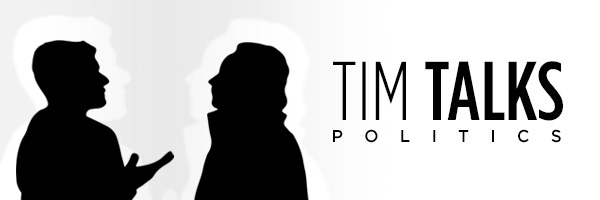Coronavirus conundrums

The Weekly Brief - February 21, 2020
Bloomberg’s Las Vegas bust
I’m a perfect 10 for 10 in avoiding watching the Democratic debates (#goals), but apparently I missed a really entertaining one the other night. With Michael Bloomberg making his highly anticipated debate stage debut, viewers were apparently primed for a show and got WWE Raw level intraparty smackdowns.
The biggest loser of the night appears to have been a befuddled Bloomberg who took it on the chin from a reenergized Warren, and several commentators noted that Buttigieg and Klobacher didn’t really seem to capitalize on their New Hampshire performances very well.
This pretty much left Bernie Sanders the winner by default that dovetailed nicely with a slew of new polls that put Sanders in a very comfortable lead, more or less cementing his frontrunner status ahead of the next round of primaries.
Here come the polls!
With all the upheaval in the Democratic race with the Bloomberg boom, the Sanders surge, and the Buttigieg bump, one has to wonder how the needles are moving on national polls. I got you.
The great news is that, according to Gallup, Americans seem to be pretty excited about the upcoming election, which could indicate higher voter turnout. But who would benefit in such a situation? Contrary to much popular opinion, the beneficiary of higher voter turnout could be the president who is also sitting on a two week run of increasing job approval ratings.
Coronavirus conundrums
As China continues to change its reporting on official coronavirus numbers (creating a spike in cases last week), doubts are piling up on the general veracity of China’s accounts related to the virus. Those doubts grew louder as China expelled three American journalists earlier this week.
Ignoring the rich ground such dishonesty creates for conspiracy theories, economic data is emerging as one of the better lead indicators of the scale of the epidemic. Apple and dozens of other companies announced lower than anticipated Q4 earnings due to the coronavirus’ impact on supply chains. The announcement has led some to conclude that the scale of coronavirus is much larger than initially thought.
To add to American consternation over the virus, 14 Americans being evacuated from a cruise ship in Japan have tested positive for the virus.
Violence spikes in West Africa
Rising levels of political violence continue in several western African nations. Indeed, the death toll, and the geographic scope are sobering:
22 dead in an Anglophone village in Cameroon
24 killed in an attack on a church in Burkina Faso
30 killed in Nigeria’s northwestern region
Reports indicate that the attacks were carried out by different groups with different motivations. The Nigeria attack appears to have been carried out by a gang of bandits, the Cameroon attack comes in the midst of an escalating civil conflict, and the Burkina Faso attack was carried out by jihadist militants.
The varying nature of the attacks and their perpetrators complicates the regional security picture tremendously, which is something the US is wrestling with as Africa Command considers its force posture in the neighborhood.
Blasts from the past
There were several news stories that the Brief has covered in the past that popped back on to the radar this week, so if you were wondering what became of ‘X’, here are some updates:
The New Humanitarian reports on a separatist attack in Ukraine’s eastern Donbas region. Most seem to see the flare up in fighting as having more to do with diplomatic maneuvering by Moscow, but any shooting in a conflict that had simmered down could heat things back up.
There’s another election coming up in Israel where Benjamin Netanyahu is trying to salvage his political career. However, this time, he’s trying to stay one step ahead of the courts as he also has a court date set in mid March (a couple weeks after the election) to begin his trial on corruption charges he was recently indicted on. It would seem the Bibi and Israel’s political fates are somewhat intertwined at the moment.
Remember when President Trump expressed an interest in buying Greenland? Well, according to Lawfare, China may have similar ideas, which could pose a major security threat to the US, Canada and NATO countries.
America and the Taliban have still been talking about a potential peace deal, and the Quincy Institute discusses the latest developments that could get the parties to a final deal.
Other news and trends
And while the above issues and conflicts grind on, new developments emerge to shape the near term future:
The ongoing civil war in Yemen has led to something of an economic boom in the eastern region of Mahra, which could offer a picture of what Yemen could look like should the fighting be brought to an end.
Hardly reported, but significant on multiple levels, India has surpassed Great Britain as the world’s fifth largest economy.
Lawfare spotlights some fascinating new research on America’s secret international agreements, a topic that raises major questions on transparency, secrecy, and national security.
A new EU agreement aims to interdict arms shipments entering the Libyan conflict.
And closer to home, the Boy Scouts of America are filing for bankruptcy.
The University of Southern California announced that it would be offering free tuition to low income students in what will be a very important test case for private colleges and universities seeking solutions to reduce costs and stay competitive with public institutions.

